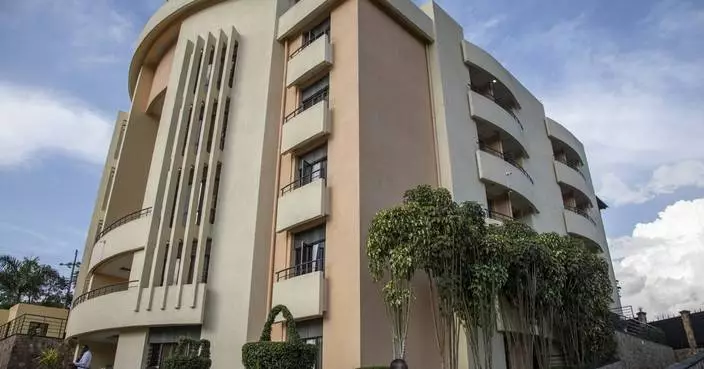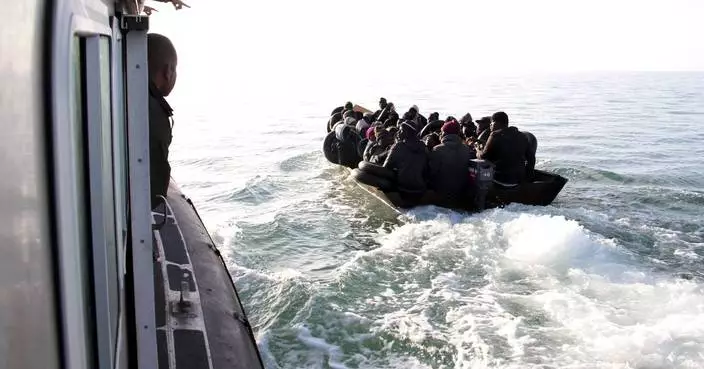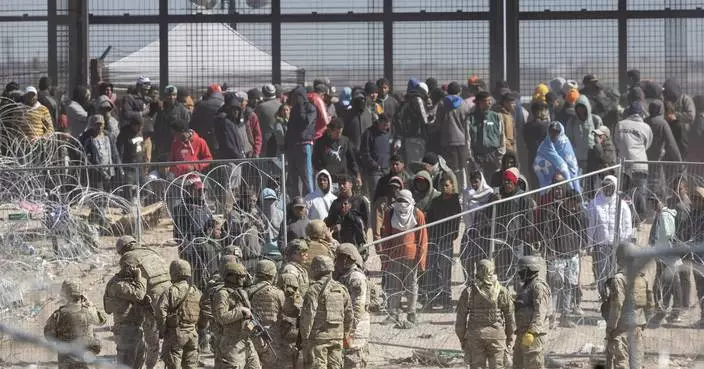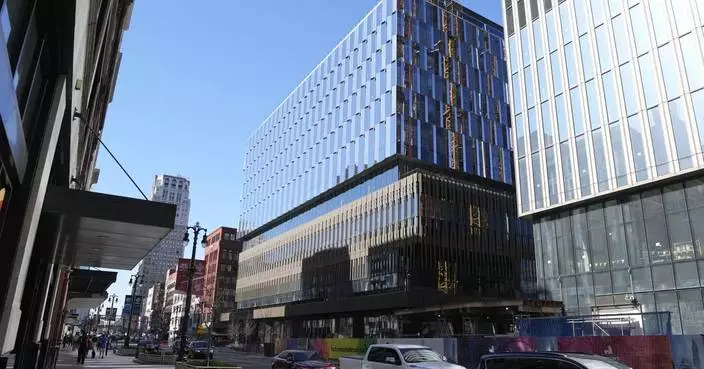An inquiry into claims that the European Union’s border and coast guard agency was involved in illegally pushing back migrants has cleared Frontex of links to most of the incidents but has been unable to establish what happened in five cases, according to the official report into the allegations.
The report is by a special working group set up to investigate media allegations that staff, ships or aircraft working with Frontex took part in or were near more than a dozen pushback incidents in the sea between Greece and Turkey last year. Its findings will be the focus of an extraordinary meeting of the agency’s management board on Friday.
Frontex, which is responsible for patrolling the external borders of the 27-nation EU, has rejected the pushback allegations and said that its own internal inquiry could find no evidence to substantiate the claims. Greece, which is in charge of operations involving coordinating Frontex on its territory, has also denied reports of pushbacks by its border officers.
Pushbacks are forcibly preventing people from entering a country when they might want to apply for asylum. They are contrary to refugee protection agreements, which say people shouldn’t be returned to a country where their life and safety might be in danger due to their race, religion, nationality or political views. They also contravene EU law and policy.
The working group cleared Frontex of any wrongdoing in 8 cases, but said in five cases “it has not been possible to completely resolve the incidents beyond any reasonable doubt,” according to part of the restricted report, dated March 1 and seen by The Associated Press.
Investigators could not determine whether the people involved in the five incidents were picked up by Turkish authorities or made it safely onto Greek soil. “There is no indication of anybody injured, reported missing or having died in connection with the respective incidents,” the report said.
The probe, by experts from seven European countries and the European Commission, was set up weeks after reports of collective migrant expulsions were revealed in an October joint investigation by media outlets Bellingcat, Lighthouse Reports, Der Spiegel, ARD and TV Asahi.
Follow AP’s global migration coverage at https://apnews.com/hub/migration
BELEM, Brazil (AP) — The bodies of nine migrants found on an African boat off the northern coast of Brazil’s Amazon region were buried Thursday with a solemn ceremony in the Para state capital of Belem.
Fishermen off the coast of Para found the boat adrift April 13, carrying the bodies that were already decomposing. Brazilian officials later said documents found in the vessel indicated that the victims were migrants from Mali and Mauritania and that the boat had departed the latter country after Jan. 17.
Brazil's federal police said later that the bodies were of adults or teenagers whose exact age could not be determined. Agents found two documents — an identity card from Mauritania and a register of entry in Mauritania that belonged to someone from Mali.
The deceased were buried in a secular ceremony organized by a number of groups involved in their recovery, such as the U.N. Refugee Agency, the Red Cross and the International Organization for Migration, as well as Brazilian police, navy and civil defense agencies.
A tropical rain fell as their coffins were lowered into graves dug into the earth and those present watched in respectful silence.
Their roughly 12-meter (39-foot) boat was carrying 25 raincoats and 27 mobile phones, suggesting the original number of passengers was significantly higher. This also implies that people of other nationalities may have been among the deceased, local officials have said.
Brazil's federal police said it is unlikely they will extract any information from the phones due to the long time of oxydation they were subjected to. The force also added they had found paper notes in the boat with phone numbers from Mauritania, Mali and Congo. A kind of stove and two containers that could have carried water or fuel were also among the remains.
It was a rustic blue-and-white fiberglass boat that, when found, had neither motor, tiller nor rudder. Its canoe shape is similar to Mauritanian fishing boats often used by migrants fleeing West Africa and aiming to enter the European Union via Spain’s Canary Islands.
An Associated Press investigation published last year revealed that in 2021 at least seven boats from northwest Africa were found in the Caribbean and Brazil. All carried dead bodies, like the vessel found in Para.
So far, none of the victims have been identified. Authorities said the manner of their burial would allow for subsequent exhumations in case families of the deceased were located and wished to transfer the bodies back to their home countries.
Brazil’s criminology institute in the capital Brasilia is carrying out forensic examinations of the remains, and the Federal Police say they are in contact with Interpol and foreign organizations to provide eventual results.
This year the number of people attempting the crossing from the northwest coast of Africa to the EU has seen a 500% spike, with the majority departing from Mauritania, according to Spain’s interior ministry. But it is a dangerous route with strong Atlantic winds, and boats that go off course can stay adrift for months and be swept away to distant destinations, often leading migrants to die of dehydration and malnutrition.
The reasons pushing people toward such boats are varied and intertwined: a lack of jobs and prospects of a better life, impacts of climate change, growing insecurity and political instability, among others.
More than 14,000 African migrants have reached the Canary Islands so far this year, according to the Spanish ministry. In February, the EU and Mauritania signed a 210 million euro ($225 million) deal aimed at cracking down on people smuggling and deterring migrant boats.
With hundreds more West African migrants reported missing, families in Mauritania have set up a commission to search for loved ones, and are anxiously awaiting information from Brazil.
Bachirou Saw of Mauritania buried one of his nephews earlier this year who had died during the arduous Atlantic crossing shortly after reaching the Spanish island of El Hierro. He’s still looking for another nephew, Kadija Saw, who departed in January and is nowhere to be found. He’s following news from Brazil closely.
Saw, who also has Spanish citizenship and immigrated to Europe by plane 30 years ago when it was easier to get a visa, said he’s been trying to convince young men not to emigrate by boat. He created a WhatsApp group to alert migrants to the perils of the ocean voyage and to share information with desperate relatives, and has counted at least 1,500 missing in the last six months from Mauritania, Mali and Senegal. While most of the migrants embarking to Europe are men, there is an increasing number of women getting aboard boats, too.
“I have their ID’s on my phone,” said Saw, who receives messages every day from families looking for their loved ones. Together with others, they’ve organized trips to Morocco to look inside prisons and morgues. Moroccan authorities often intercept migrants trying to reach Spain and detain them before deporting them. But Saw’s nephew wasn’t there either. He also visited the Canary Islands to check the morgues there.
Saw’s sister is desolate. “Every day she buys credit to listen to our audios, she lives for this, she doesn’t eat, she is thin, just thinking about her son,” Saw said. And she’s not alone.
“It’s very sad, half of the villages are dancing because their sons have arrived (in Spain),” he said, “but the other half cries because they’ve lost their sons in the ocean.”
Carneiro reported from Rio de Janeiro. Associated Press writer Renata Brito contributed from New York.
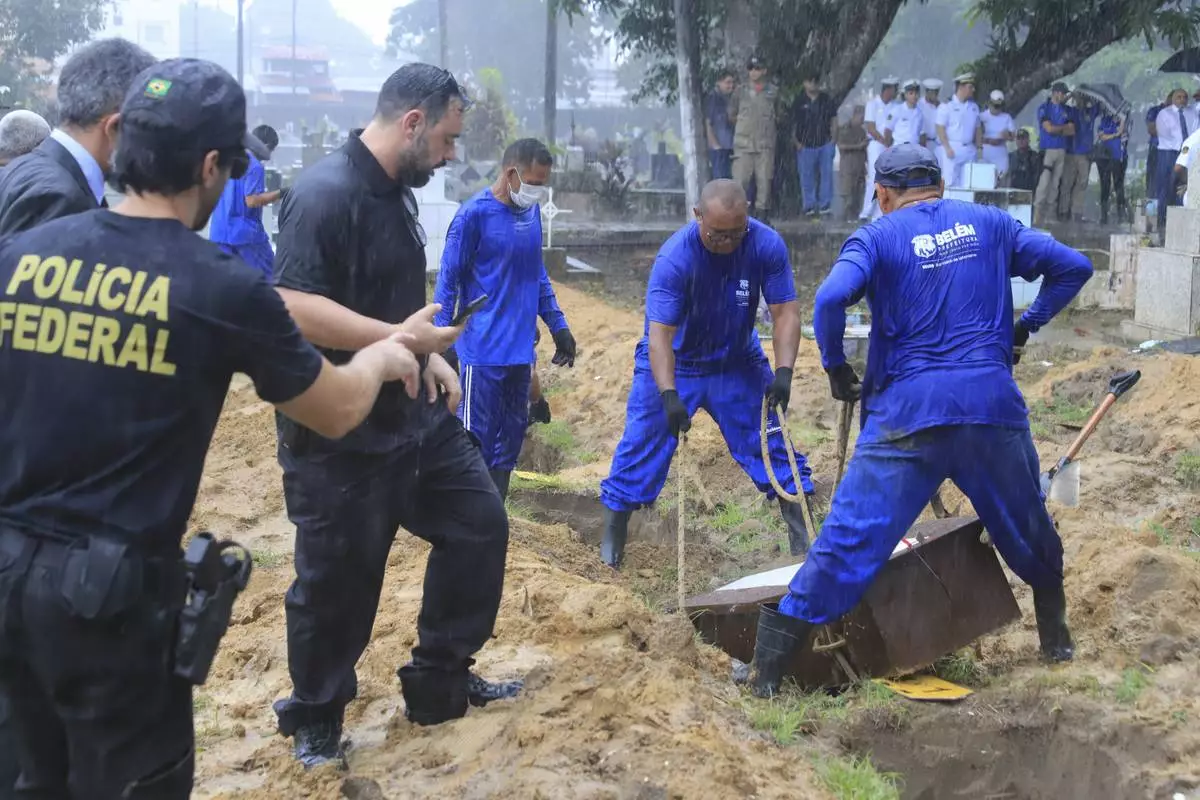
Cemetery workers lower into a grave, a coffin that contains the remains of an unidentified migrant, at the Sao Jorge cemetery, in Belem, Para state, Brazil, Thursday, April 25, 2024. The bodies of nine migrants found on an African boat off the northern coast of Brazil's Amazon region were buried Thursday with a solemn ceremony. (AP Photo/Paulo Santos)
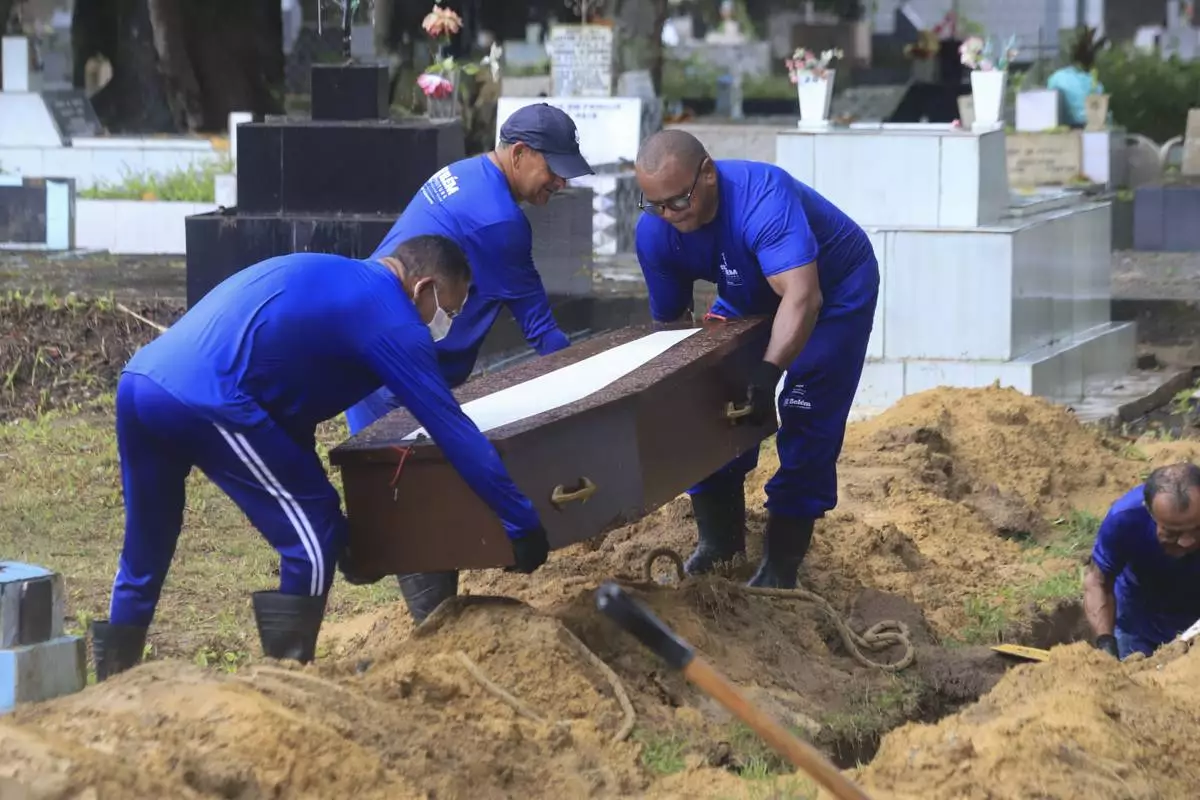
Cemetery workers lower into a grave, a coffin that contains the remains of an unidentified migrant, at the Sao Jorge cemetery, in Belem, Para state, Brazil, Thursday, April 25, 2024. The bodies of nine migrants found on an African boat off the northern coast of Brazil's Amazon region were buried Thursday with a solemn ceremony. (AP Photo/Paulo Santos)
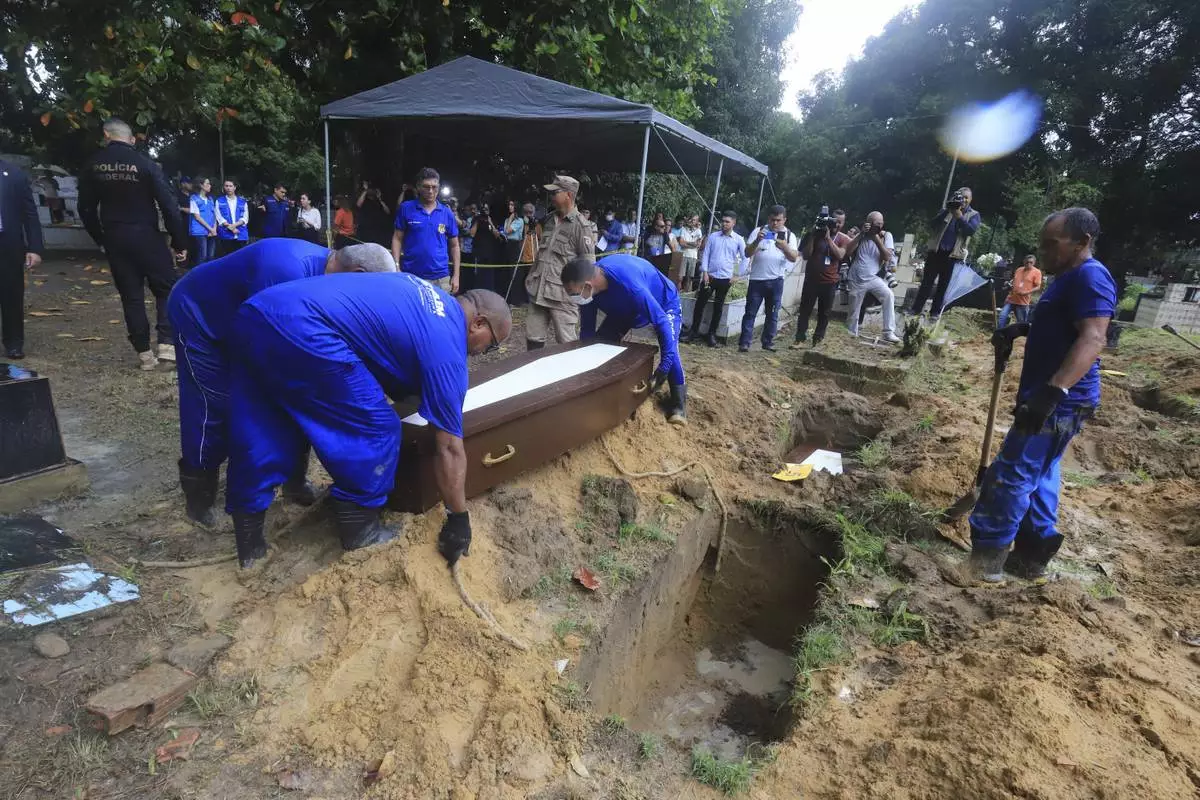
Cemetery workers lower into a grave, a coffin that contains the remains of an unidentified migrant, at the Sao Jorge cemetery, in Belem, Para state, Brazil, Thursday, April 25, 2024. The bodies of nine migrants found on an African boat off the northern coast of Brazil's Amazon region were buried Thursday with a solemn ceremony. (AP Photo/Paulo Santos)
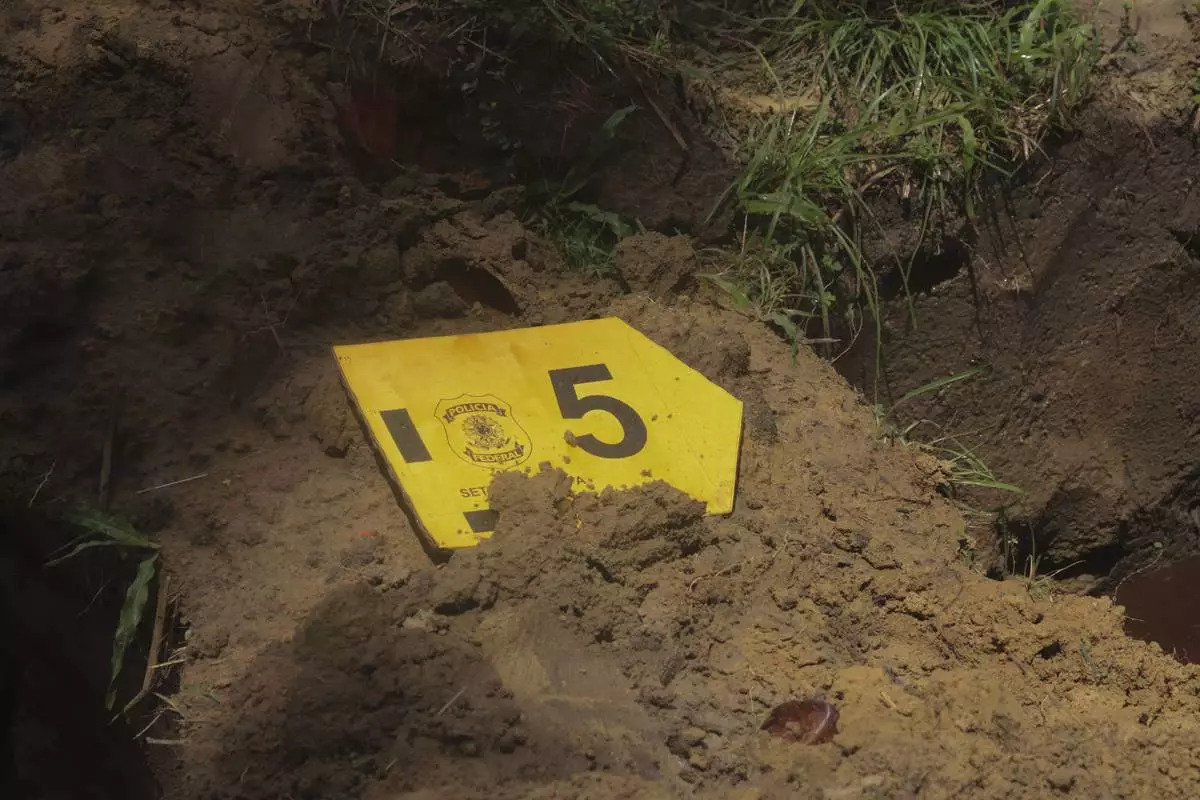
A label with the number 5 to mark one of nine unidentified migrants, sits on a freshly dug grave during a burial service, at Sao Jorge cemetery, in Belem, Para state, Brazil, Thursday, April 25, 2024. The bodies of nine migrants found on an African boat off the northern coast of Brazil's Amazon region were buried Thursday with a solemn ceremony in a cemetery. (AP Photo/Paulo Santos)
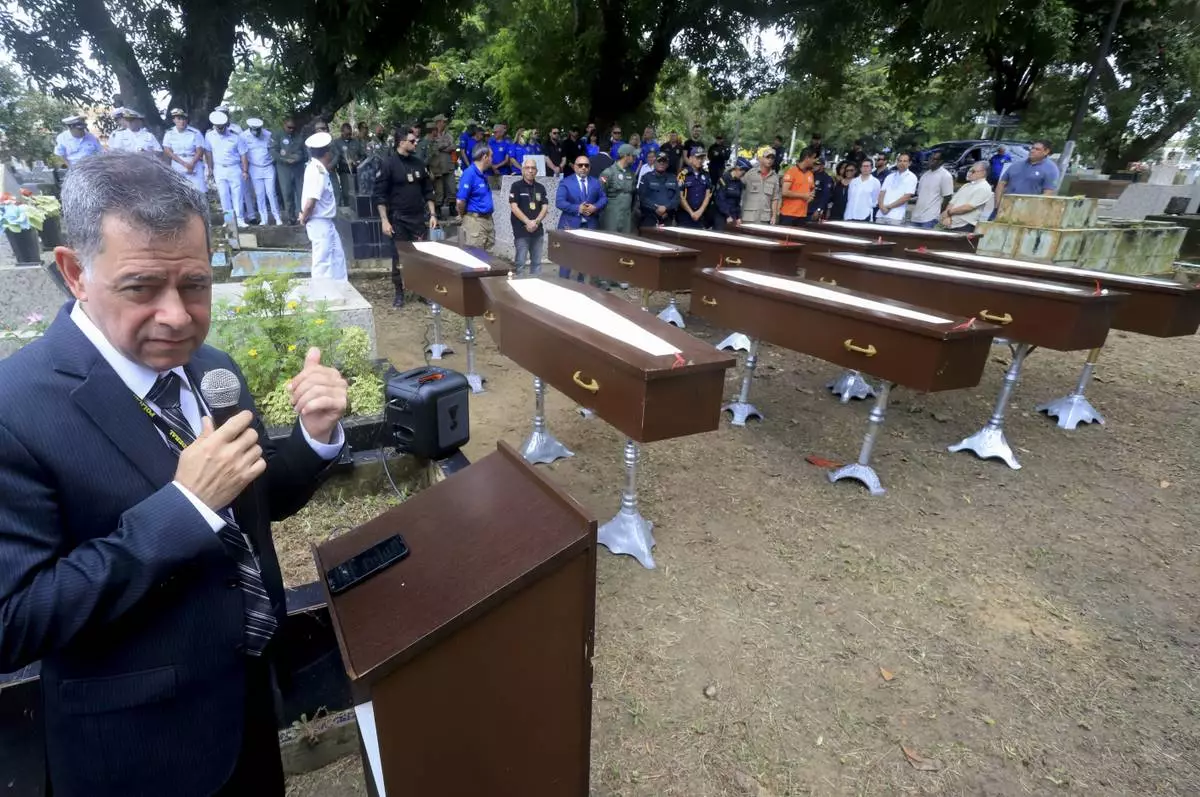
Federal police superintendent Jose Roberto Peres speaks during a burial service for nine unidentified migrants, at the Sao Jorge cemetery, in Belem, Para state, Brazil, Thursday, April 25, 2024. The bodies of nine migrants found on an African boat off the northern coast of Brazil's Amazon region were buried Thursday with a solemn ceremony. (AP Photo/Paulo Santos)
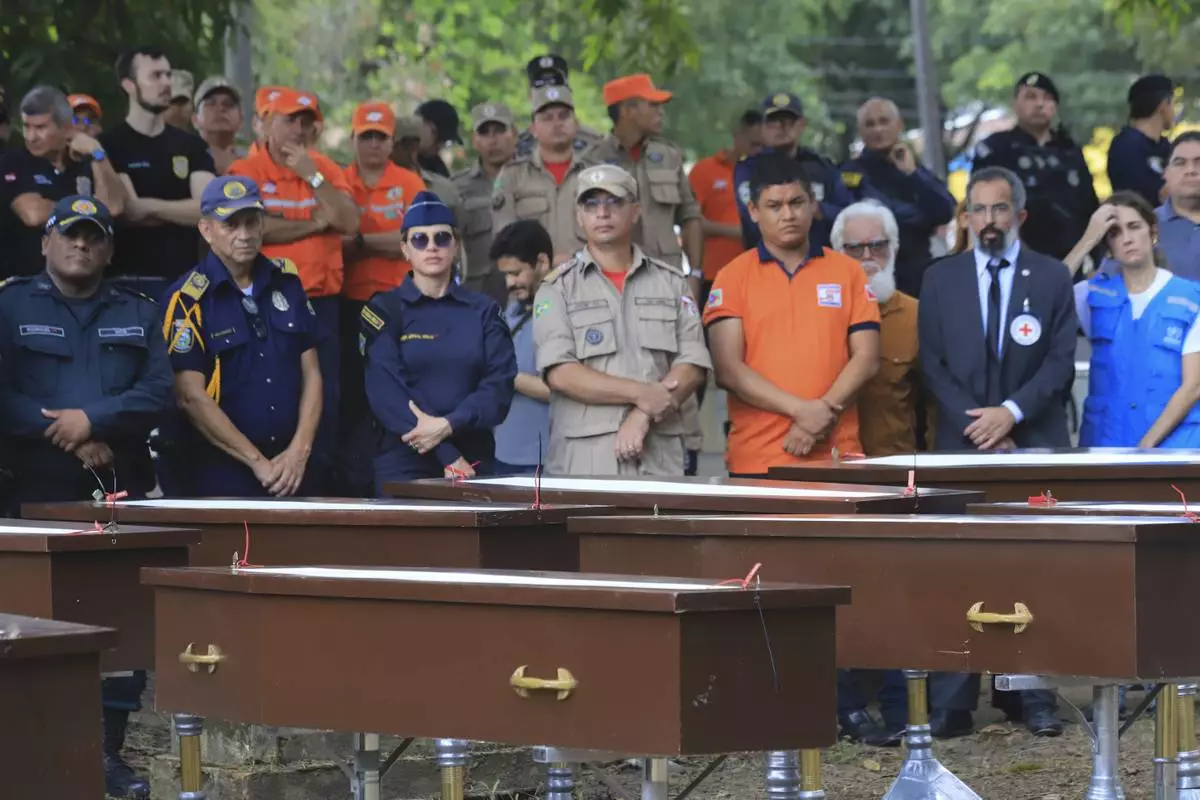
Police and firefighters attend the burial of nine unidentified migrants at the Sao Jorge cemetery, in Belem, Para state, Brazil, Thursday, April 25, 2024. The bodies of nine migrants found on an African boat off the northern coast of Brazil's Amazon region were buried Thursday with a solemn ceremony. (AP Photo/Paulo Santos)
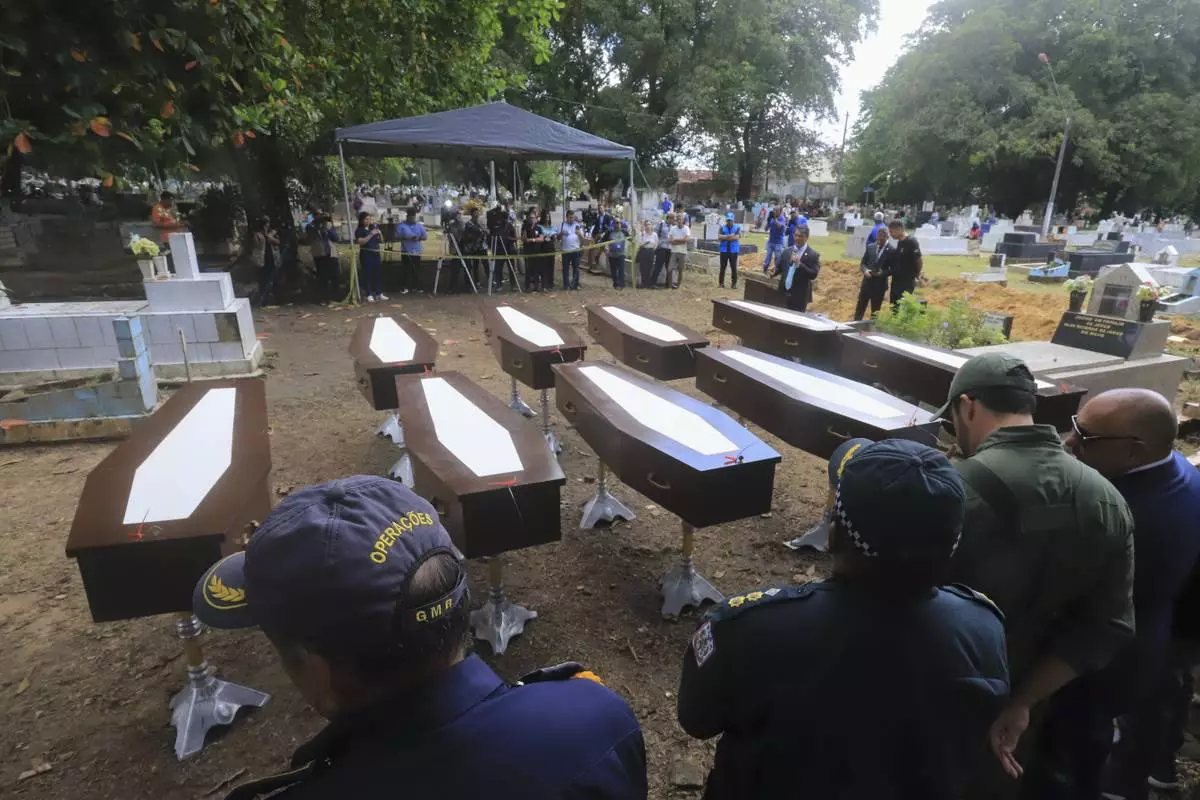
Authorities stand next to the nine coffins that contain the remains of unidentified migrants, at the Sao Jorge cemetery, in Belem, Para state, Brazil, Thursday, April 25, 2024. The bodies of nine migrants found on an African boat off the northern coast of Brazil's Amazon region were buried Thursday with a solemn ceremony. (AP Photo/Paulo Santos)
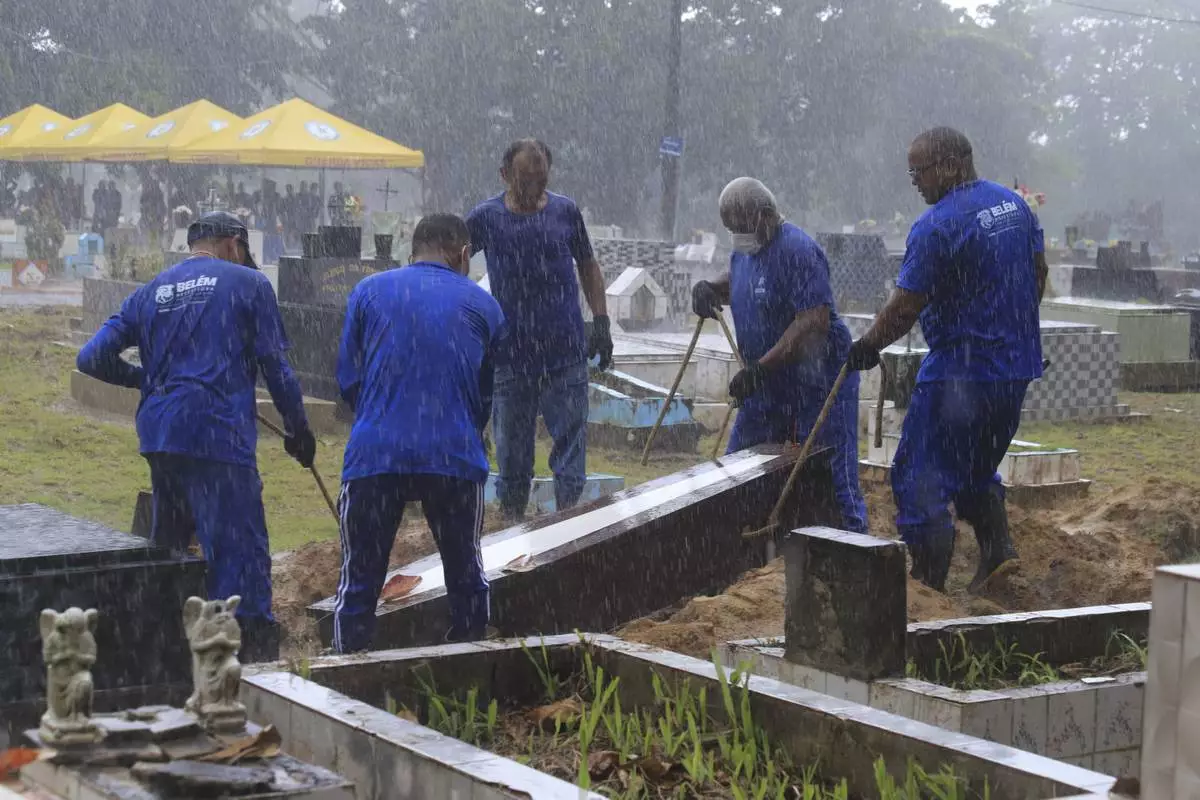
Cemetery workers carry the coffin that contains the remains of an unidentified migrant, at the Sao Jorge cemetery, in Belem, Para state, Brazil, Thursday, April 25, 2024. The bodies of nine migrants found on an African boat off the northern coast of Brazil's Amazon region were buried Thursday with a solemn ceremony. (AP Photo/Paulo Santos)











